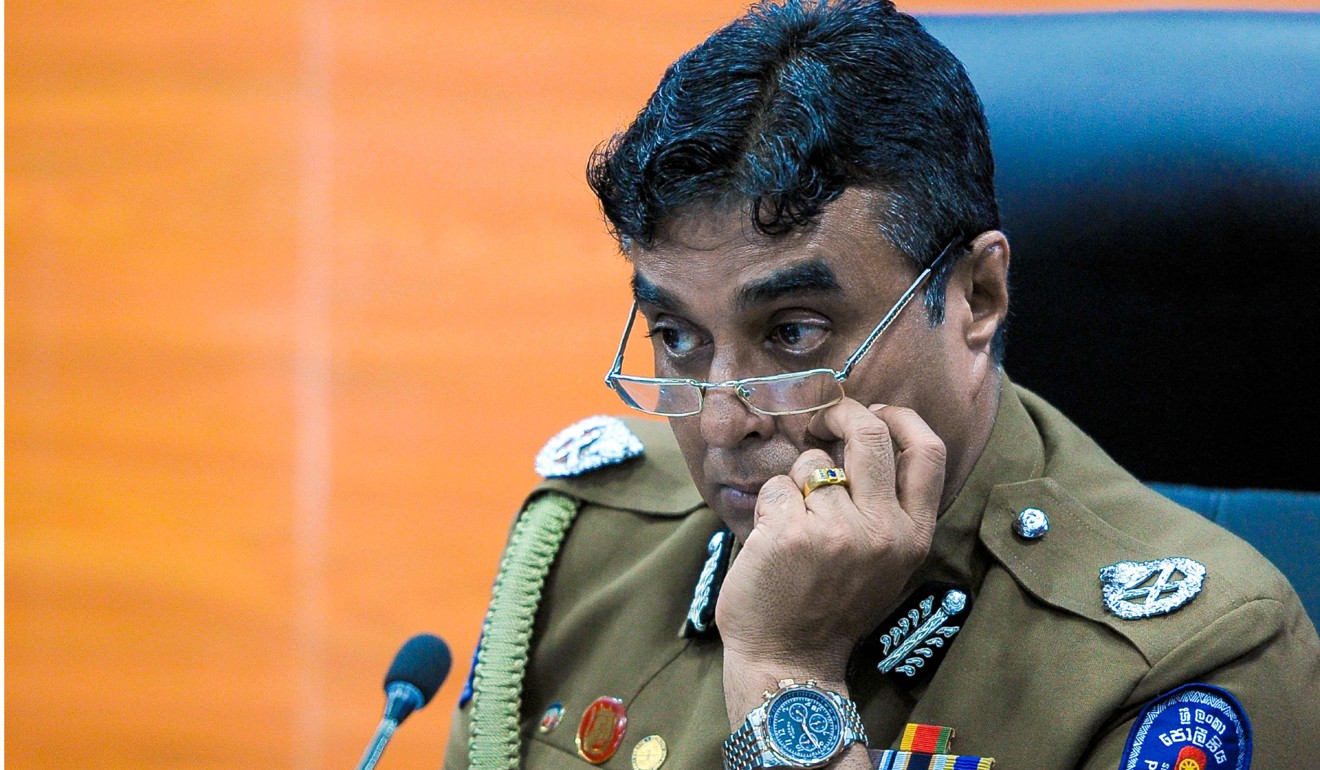
Sri Lanka’s security services shaken up amid calls from Catholic cardinal for ‘war footing’ against country’s Islamists
- Malcolm Ranjith, the archbishop of Colombo, said the church may not be able to stop people from taking the law ‘into their own hands’
- His comments come amid a shake-up of the country’s security services a week after deadly attacks that killed more than 250 people
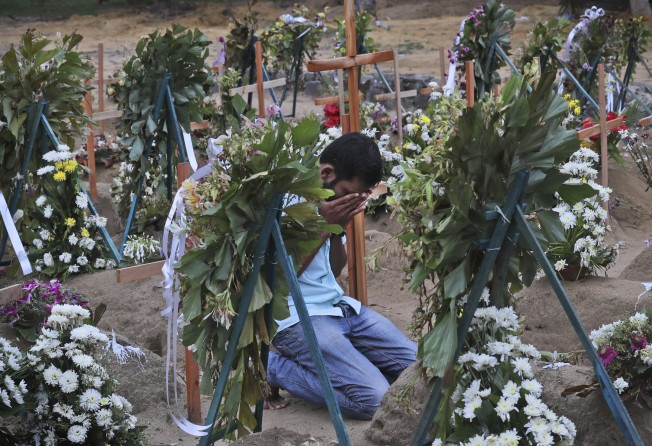
Sri Lanka’s president suspended the chief of police on Monday and appointed a new defence secretary in a shake-up of the shell-shocked country’s security services following the Easter Sunday terror attacks.
Intelligence warnings from abroad alerting to possible attacks by Islamist extremists were ignored ahead of the multiple bombings of churches and upscale hotels on April 21 that killed 253 people and injured nearly 500.

Chief of police Pujith Jayasundara had refused to quit to clear the way for a shake-up of the 85,000-strong force, prompting President Maithripala Sirisena to suspend him on Monday.
Senior Deputy Inspector-General Chandana Wickramaratne was appointed acting police chief in his place, Sirisena’s office said in a statement.
Separately Sirisena appointed on Monday a former head of the army, Shantha Kottegoda, as the country’s top defence official.
His predecessor at the ministry of defence and law and order, Hemasiri Fernando, stepped down on Thursday.
General Kottegoda, 69, was forced to retire as head of the army in December 2005, by then-president Mahinda Rajapakse.
Sirisena said an intelligence agency from a neighbouring country had provided precise details of the impending attack 17 days in advance, but local authorities had failed to take counter measures.
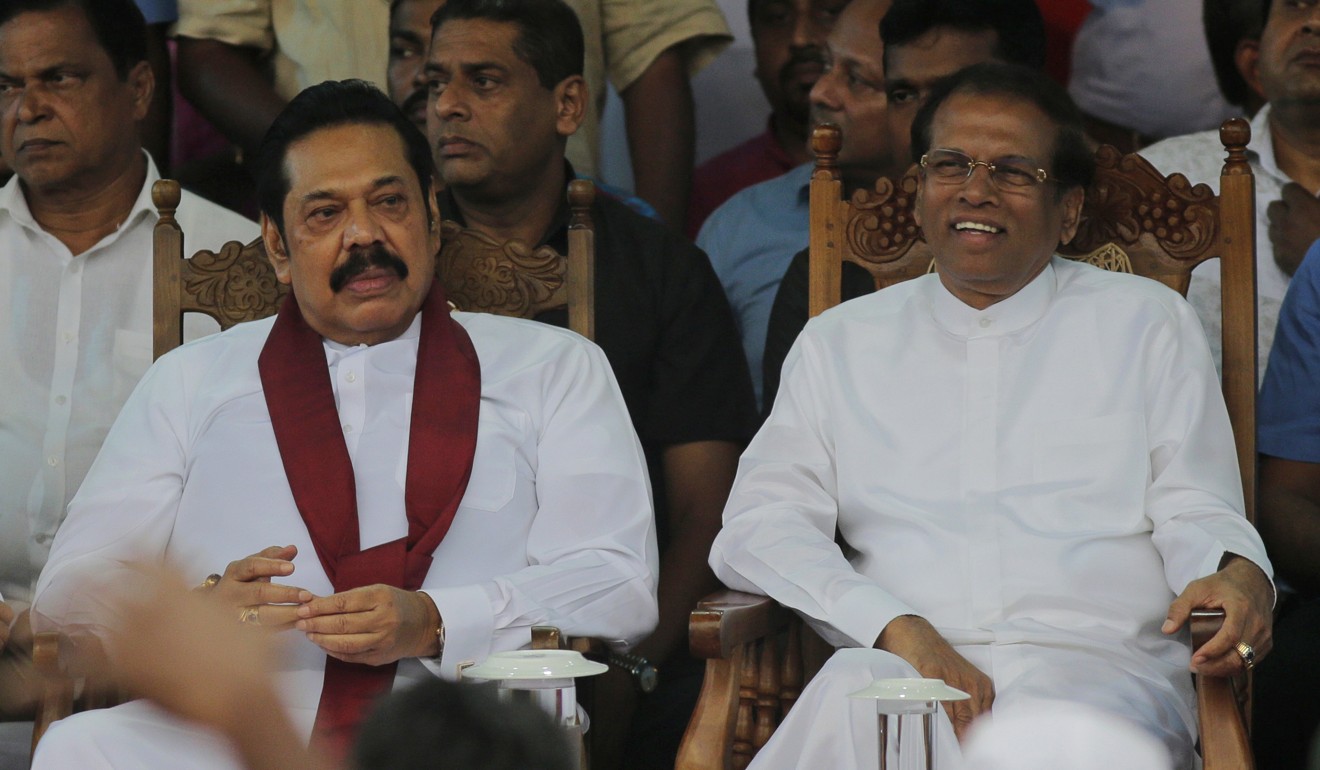
Official sources said the president was referring to information provided by India’s Research and Analysis Wing which apparently gleaned details of the Easter attacks from a jihadist suspect in Indian custody.
The government has since declared a state of emergency and deployed thousands of troops for search operations against Islamist extremists, with more than 150 people arrested since April 21.
Meanwhile, the country’s Catholic Church said on Monday that the government should crack down on Islamic extremists with more vigour “as if on war footing” in the aftermath of the bombings.
Cardinal Malcolm Ranjith, the archbishop of Colombo, said the church may not be able to stop people from taking the law “into their own hands” unless the government conducts a more thorough investigation and does more to prevent further attacks.
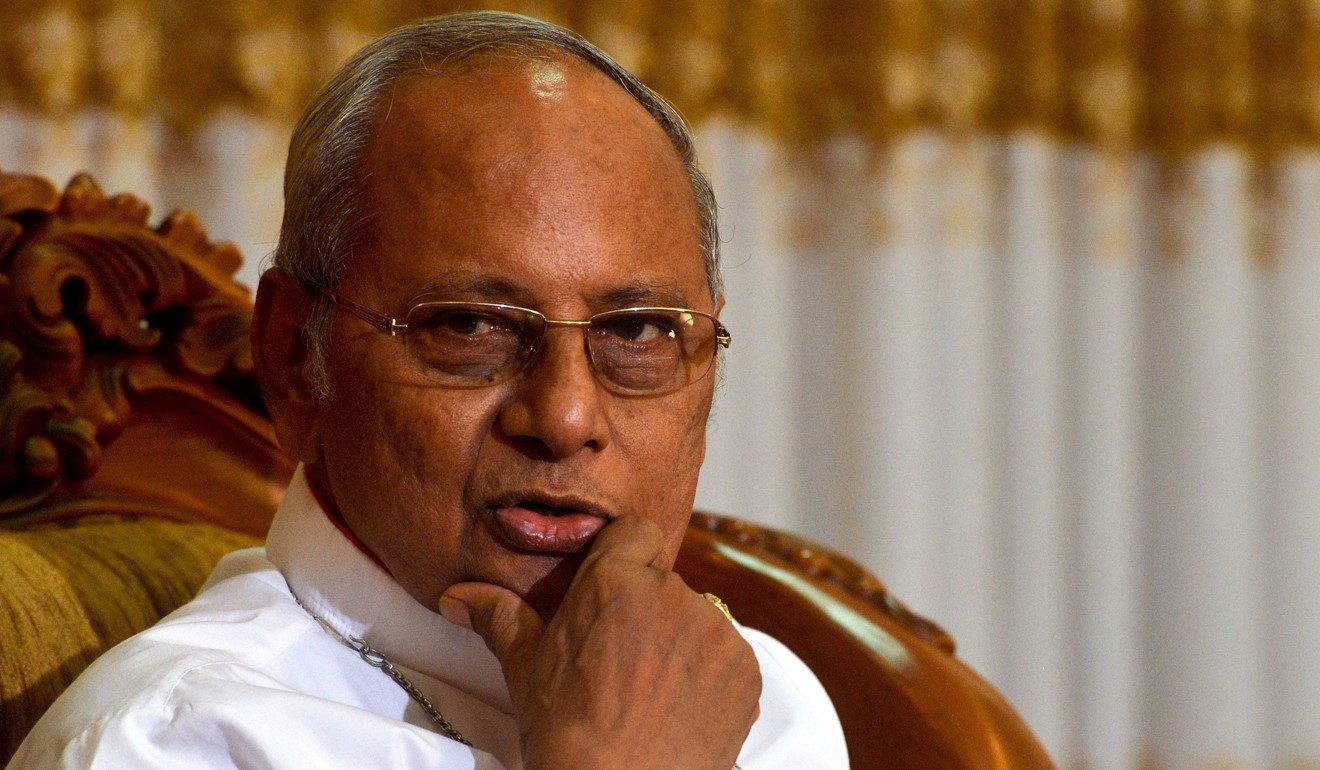
“I want to state that we may not be able to keep people under control in the absence of a stronger security programme,” he said, before assuring Muslims that the church will not allow any revenge attacks against them.
He also said church services would be held this coming Sunday after necessary precautions are taken. The number of Masses will be reduced at every church, with police and parish committees entrusted with the task of looking out for strangers.
The Islamic State group has claimed responsibility for the Easter attacks and investigators are looking into the extent of the extremist group’s direct involvement with the local radicalised Muslims who carried out the suicide bombings.
On Friday, suicide bombers detonated themselves at a militants’ safe house in Kalmunai, some 225 kilometres northeast of the capital, Colombo, during a police raid.
Ahamed Mohammed Rizwan had gone to the militants’ house after leaders at his mosque asked him and two others to check on the occupants.
As they approached, one man opened the gate and said, “peace be upon you,” Rizwan said. He replied the same way and they entered the compound and began talking. Suddenly, another man appeared with a Chinese variant of the Kalashnikov assault rifle and aimed it at Rizwan’s chest, saying, “God is the greatest.”
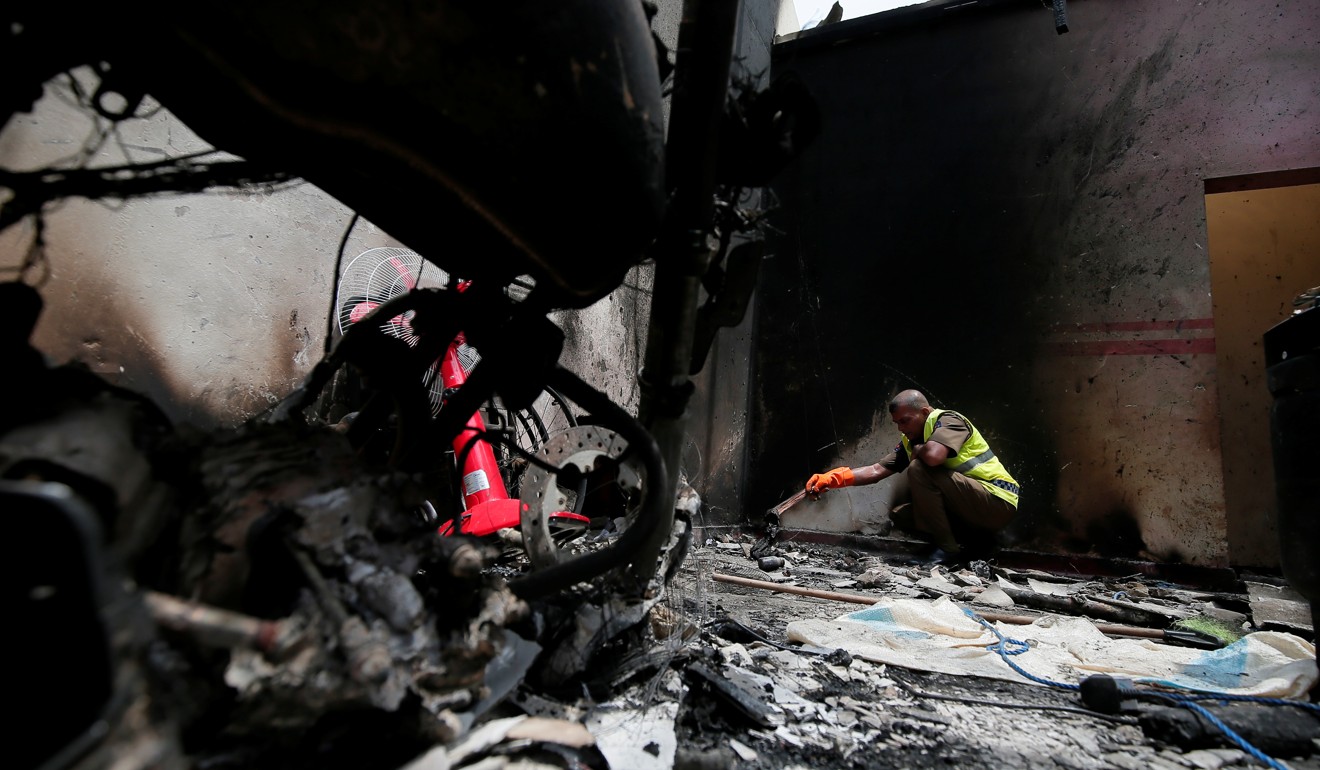
Rizwan and the other men fled and found two traffic police officers, who then started walking toward the house. The militants opened fire, sparking a firefight, Rizwan said. Those inside later detonated suicide vests, killing themselves and others.
Journalists walking through the neighbourhood on Sunday found evidence of the gunbattle. Spent 7.62mm cartridges littered the ground, likely from the assault rifle one of the militants carried. Down the street, bullet holes punctured the cement block walls of neighbours’ homes.
Around the house, the scale of the violence became even more clear. A limb still lay in a drainage ditch. The roof of the home had been blown off by the power of the explosion, pages of religious tracts in Arabic lying atop it.
Inside the home, lined notebooks had a child’s shaky Arabic calligraphy. Police also laid out white linen dresses recovered from inside, similar to those worn by Buddhist women when they go to temple. Investigators spoke softly to each other, wondering if that meant the militants planned to expand their targets beyond Christian churches.
Soldiers waited until sunrise on Saturday before entering the home, ending the violence that killed 15 people. Amid the bloodstained walls and shattered glass, they found a young girl, as well as a woman. Police spokesman Ruwan Gunasekara later identified them as the wife and 4-year-old daughter of Mohammed Zahran, the alleged mastermind behind the Easter bombings.
Meanwhile, in nearby Kattankudy, the mosque of National Towheed Jamaat, the organisation that Zahran once led, found itself raided by police and military Sunday. Authorities searched and shut down the centre.
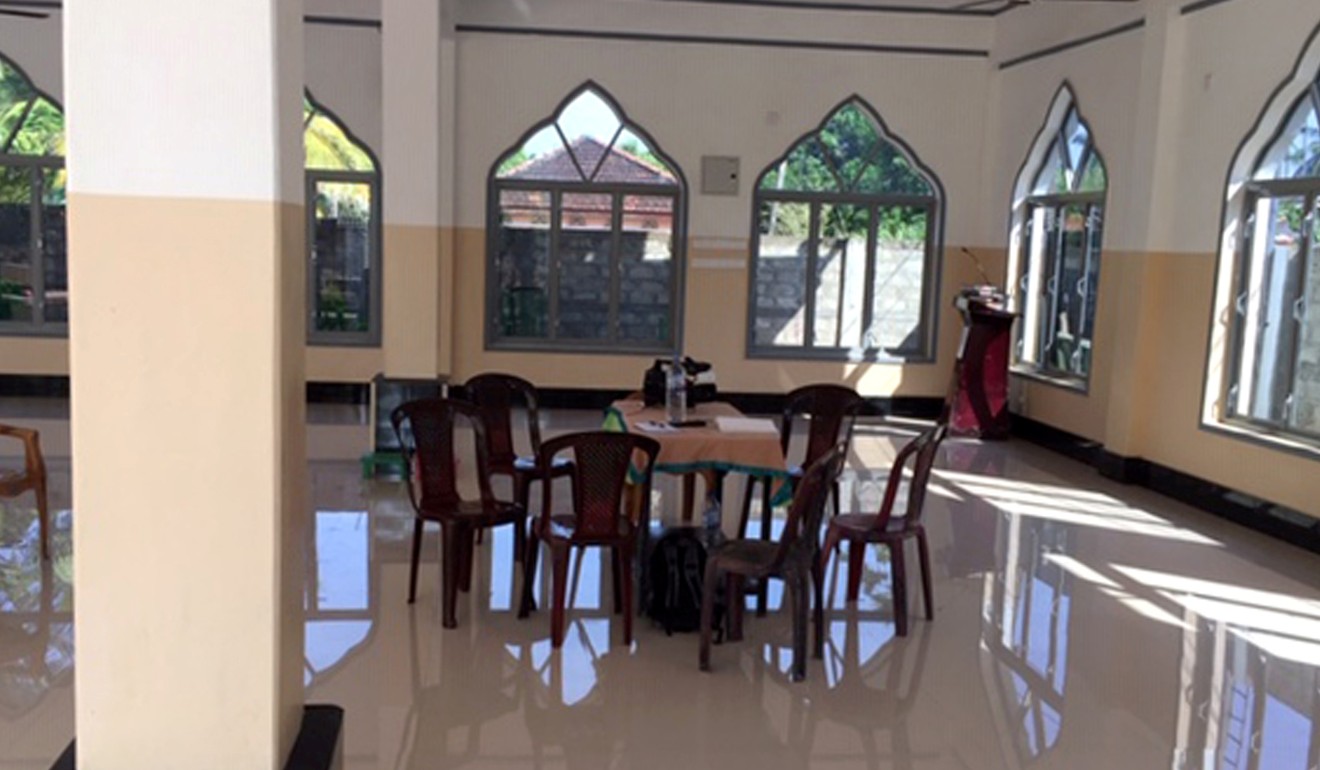
IS also claimed Friday night’s suicide bombings, saying early on Sunday morning that “with success from Allah the Almighty” the attackers blew themselves up.
But police discovered the bodies of six children inside of the home, all likely the victims of a powerful blast that tore away part of the home’s roof and sent out a deadly wave of small metal balls.
Churches across the nation were shut on Sunday, a week after the bombings, for fear of an attack by IS-linked militants. Sri Lanka’s Catholics celebrated Mass in their homes as Ranjith, the Colombo archbishop, presided over a televised service.
The closing of the churches came after local officials and the US Embassy in Colombo warned that more militants remained on the loose with explosives.
Even though all of the island nation’s schools are to reopen on May 6, Ranjith said Catholic schools could be kept closed after that date if the church is not satisfied with security.
Meanwhile, the government has banned all kinds of face coverings that may conceal people’s identities. The emergency law, which took effect Monday, prevents Muslim women from veiling their faces.
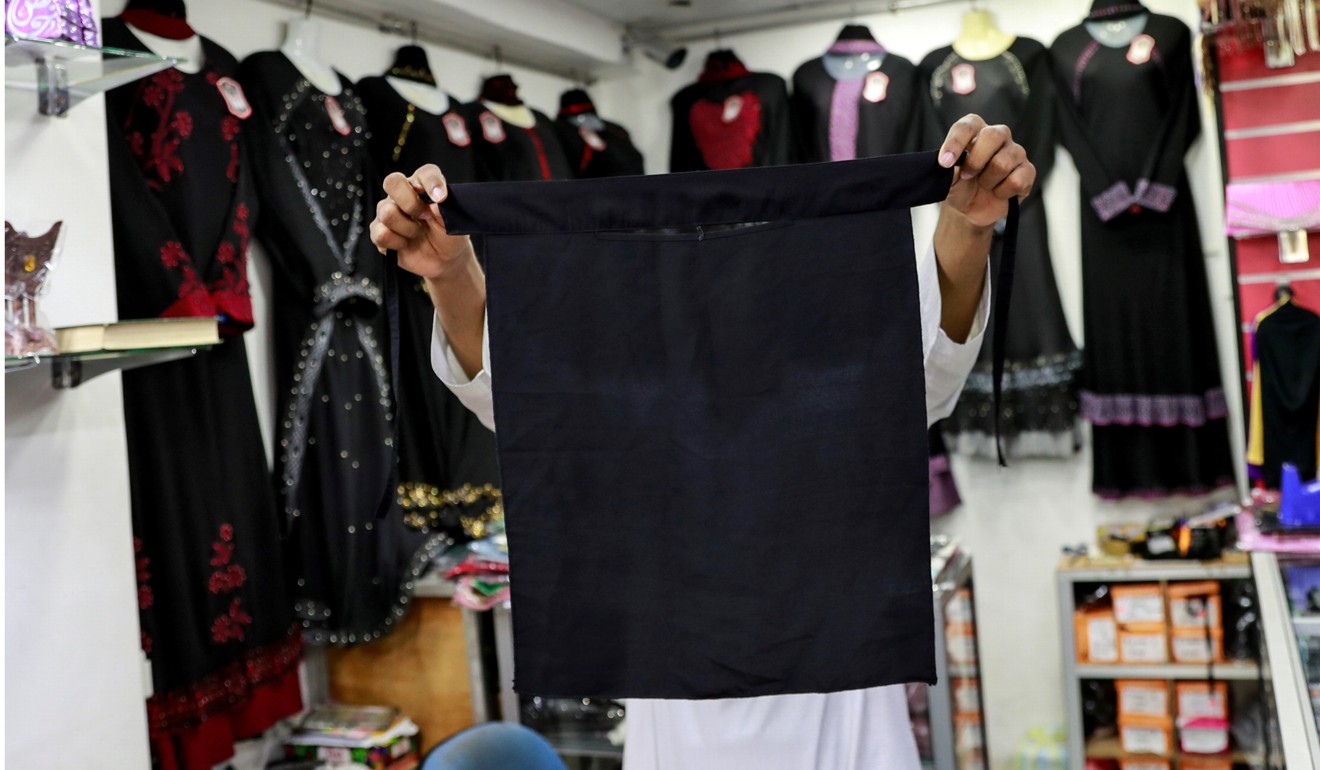
The decision came after the cabinet had proposed laws on face veils at a recent meeting. It had deferred the matter until talks with Islamic clerics could be held, on the advice of Prime Minister Ranil Wickremesinghe.
Also on Monday, Sri Lanka’s Tourism Bureau Chairman Kishu Gomes said that tourist arrivals in Colombo are expected to fall by 50 per cent over the next two months following the bombings.
Areas outside Colombo are not expected to be as badly affected, however, with a predicted 30 per cent dip.
The Easter attacks were carried out by seven suicide bombers who blew themselves up targeting three churches and three luxury hotels. Two other suicide bombers died triggering blasts, one to avoid capture by the police and another at an inn where he was staying.
Additional reporting by Associated Press and Reuters.